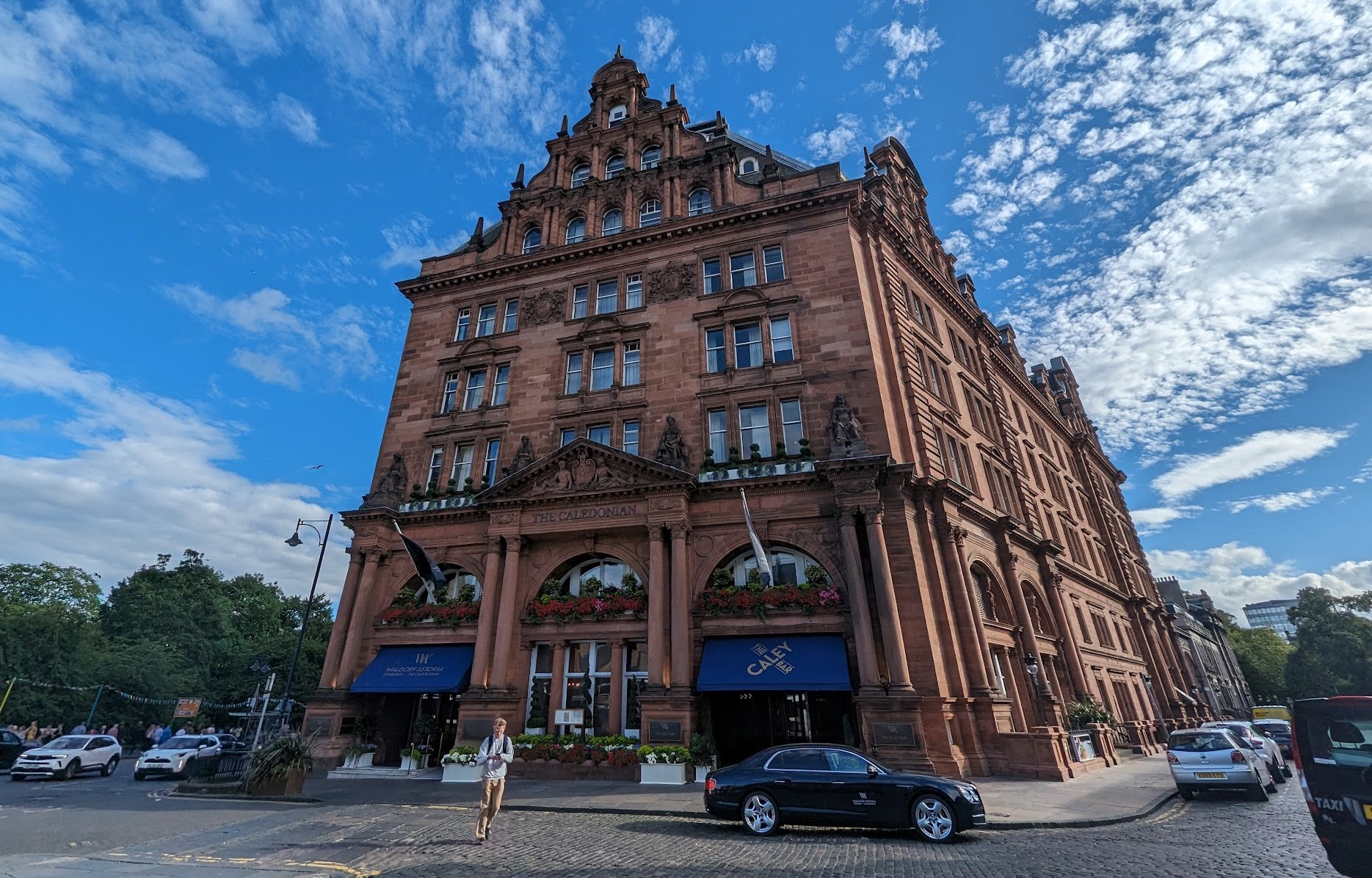RSM: Demand for Scotland’s luxury hotels outperforms UK despite Autumn Budget uncertainty

The Caledonian Edinburgh (credit: George Iordanov-Nalbantov)
Scotland’s luxury and mid market hotels have experienced a boost, as consumers are trading up their choice of hotels and demand for budget hotels falls amidst easing cost-of-living pressures, according to RSM.
The RSM Hotels Tracker: Focus on Asset Classes, uses data compiled and produced by Hotstats and analysed by RSM UK. It shows that occupancy of luxury hotels in Scotland increased from 79.5% in August 2023 to 83.8% in August 2024, edging above the UK which saw occupancy rise from 72% to 76.1% in the same period.
In addition, Scottish mid market hotel occupancy ticked up slightly from 86.5% to 87.8%. However, occupancy in budget hotels decreased from 89.2% to 88.1%, suggesting consumers have more disposable income to splurge, with UK budget hotels also seeing a fall in occupancy (83.4% to 79.8%).
In line with increased demand, average room rates of luxury hotels in Scotland rose from £385.33 to £393.35 in the year to August 2024, whereas UK luxury hotels saw a greater uptick (£340.78 to £380.30) during the same period. Scotland’s mid market hotels also jumped from £149.11 to £164.69, with budget hotels seeing a slight increase (£140.38 to £140.59).
Gross operating profits (GOP) of Scottish luxury hotels increased significantly year-on-year from £224.02 to £254.25 in August, with mid market hotels also seeing an uptick in profits (£77.11 to £87.53) Budget hotel profits fell from £78.14 to £75.03. Overall Scotland’s GOP remained in line with the wider UK market, increasing in both luxury and mid market, with budget hotels seeing a decrease.

Stuart McCallum
Stuart McCallum, partner and head of consumer markets in Scotland at RSM UK, said: “Despite some market uncertainty in the run up to next week’s Autumn Budget, Scotland’s luxury and mid market hotels performed strongly in August, with occupancy edging above the rest of the UK.
“The fall in occupancy of budget hotels in Scotland and across the UK also paints a picture of changing consumer spending and more disposable income amidst easing cost-of-living pressures. Consumers are now more focused on high-end, quality experiences, rather than cutting costs.”
Mr McCallum continued: “In Scotland, the rise in demand for premium experiences is welcome news for luxury and mid market hotels including Apex Hotels and Crieff Hydro Resort, with consumers interested in the food and drinks offerings as part of their stay.
“We’ve already seen this successfully implemented at The Balmoral, which offers a deluxe whisky bar, alongside Gleneagles’ Michelin dining and sporting experiences.
“Cromlix House is also developing a reputation for luxury and excellence with Kim and Andy Murray now able to devote more time to further enhancing the luxury experience.
“Edinburgh has become a key player in the luxury hotel market, boosted by the heavy footfall in August during the Edinburgh Fringe Festival.”
He added: “After a strong summer, it’s crucial for Scottish hotels to build on this momentum and focus on long-term strategy.
“With government support to enhance connectivity and forge stronger local partnerships, hoteliers can prepare for the added footfall during Christmas and New Year. As such, ensuring UK and international tourists receive a premium and friendly experience will be key to maintaining Scotland’s success moving into 2025.”








